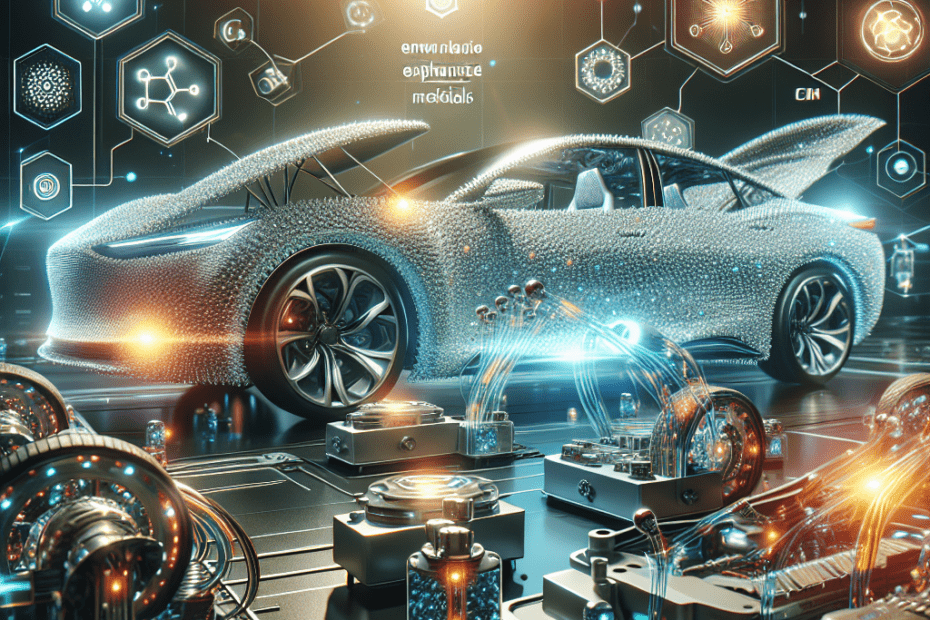They eagerly explore the realm of innovation, and today, car nanotechnology is a driving force reshaping the automotive industry. With promises of enhanced performance, increased safety, and sustainability, nanotechnology in automotive applications is more than just a buzzword. It’s an evolving force that integrates cutting-edge science into everyday driving experiences.
What is Car Nanotechnology?
Car nanotechnology refers to the application of nanotechnology to develop materials and systems intended for vehicle use. Nanotechnology operates at an incredibly small scale, typically at the level of nanometers, which are billionths of a meter. Scientists can manipulate materials on this scale, leading to revolutionary advancements in the automotive industry.
Applications of Nanotechnology in Cars
They witness numerous nanotechnology applications in vehicles today that range from better batteries to improved coatings, each adding to the overall efficiency and durability of cars.
1. Enhanced Battery Performance
Electric vehicles (EVs) have benefited significantly from nanotechnology. New nanomaterials increase the capacity and charging speed of batteries. With innovations like lithium-silicon batteries using nanoscale silicon, cars can charge faster and drive longer on a single charge. According to a study by the IEEE, cars with nanotechnology-enhanced batteries can travel up to 30% farther than traditional lithium-ion batteries.
2. Improved Fuel Efficiency
Through the use of nano-coatings and lightweight materials, vehicles are becoming more aerodynamic and reducing fuel consumption. These materials contribute directly to decreasing the overall weight of the vehicle without compromising strength, thereby improving mileage.
3. Advanced Safety Features
Car nanotechnology is instrumental in enhancing vehicle safety. Nano-engineered materials in airbags and body frames absorb more impact energy, providing better protection during collisions. Furthermore, nanotech sensors embedded in tires and brakes offer critical real-time data, ensuring safer driving conditions.
4. Smart Coatings for Durability
Vehicles endure a variety of environmental factors that can cause wear and tear. With nanotechnology, they achieve coatings that resist scratches, dents, and UV rays while keeping the car looking new. These innovative nano-coatings are also hydrophobic, enabling dirt and water to slide off effortlessly, maintaining a vehicle’s aesthetic appeal longer.
| Application | Nanotechnology Benefit |
|---|---|
| Batteries | Faster charging and greater range |
| Fuel Efficiency | Reduced weight and increased mileage |
| Safety | Improved impact absorption |
| Coatings | Enhanced durability and aesthetics |
Key Takeaways
- Car nanotechnology improves battery performance, allowing for quicker charges and longer drives.
- Lightweight materials and nano-coatings significantly enhance fuel efficiency.
- Safety features in cars are augmented through nanomaterials, providing better collision protection.
- Smart nano-coatings help keep vehicles better protected from environmental damage and maintain their appearance.
Impact and Future of Nanotechnology in the Automotive Industry
As they continue to explore the intersection of nanotechnology and automotive applications, the future appears promising. With ongoing research and development, the potential for further advancements is vast. It’s evident that nanotechnology will continue to play a pivotal role in addressing current automotive challenges while paving the way for sustainable and efficient transportation solutions.
Frequently Asked Questions (FAQ)
- What is car nanotechnology?
Car nanotechnology involves using nanoscale materials and processes to improve vehicle performance and efficiency.
- How does nanotechnology improve battery life in cars?
Nano-engineered materials enable faster charging and greater energy density, resulting in longer-lasting batteries.
- Are there any downsides to using nanotechnology in cars?
While beneficial, high costs and complex manufacturing processes are challenges currently being addressed.
- Can nanotechnology in cars improve safety?
Yes, through materials that absorb impact better and advanced sensors that enhance vehicle control.
- What does the future hold for nanotechnology in automotive applications?
The future promises more efficient, safe, and environmentally friendly vehicles as research progresses.
